Labour market success of non-completer higher education students and higher education degree-holders
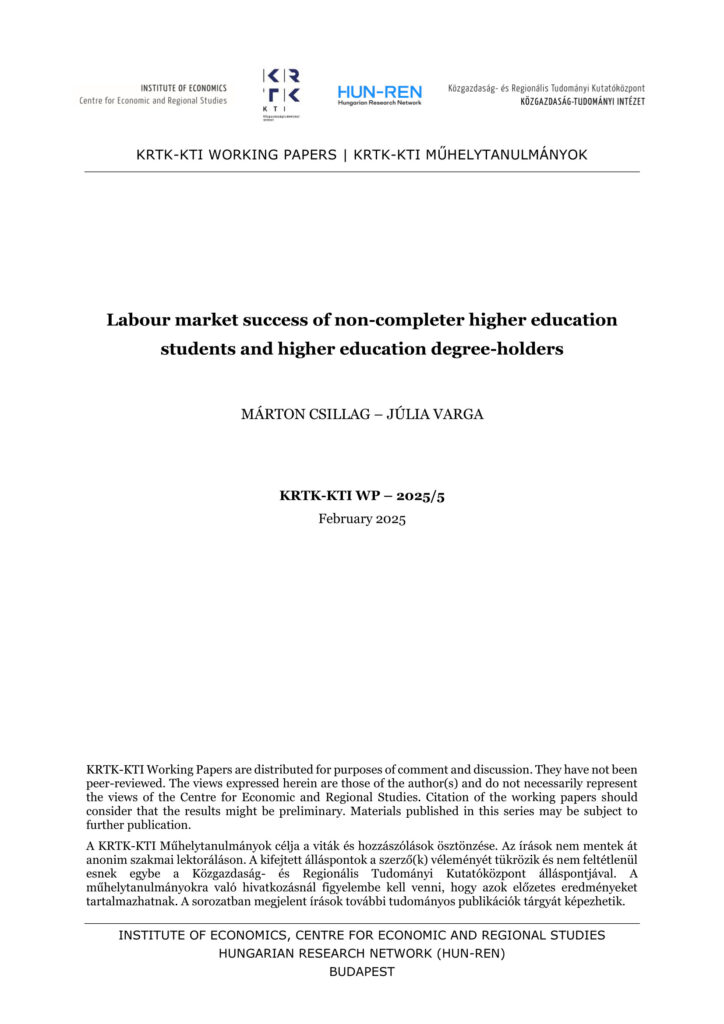
This study uses a large, individual-level, linked administrative panel dataset (Admin3) to examine the early labour market success of Hungarian higher education graduates who graduated between 2011 and 214, compared to their peers who graduated with incomplete degrees (only ‘absolutorium’ and no degree). We focus on the first 36 months of the early labour market […]
Állami oktatási és egészségügyi ráfordítások Magyarországon nemzetközi összehasonlításban
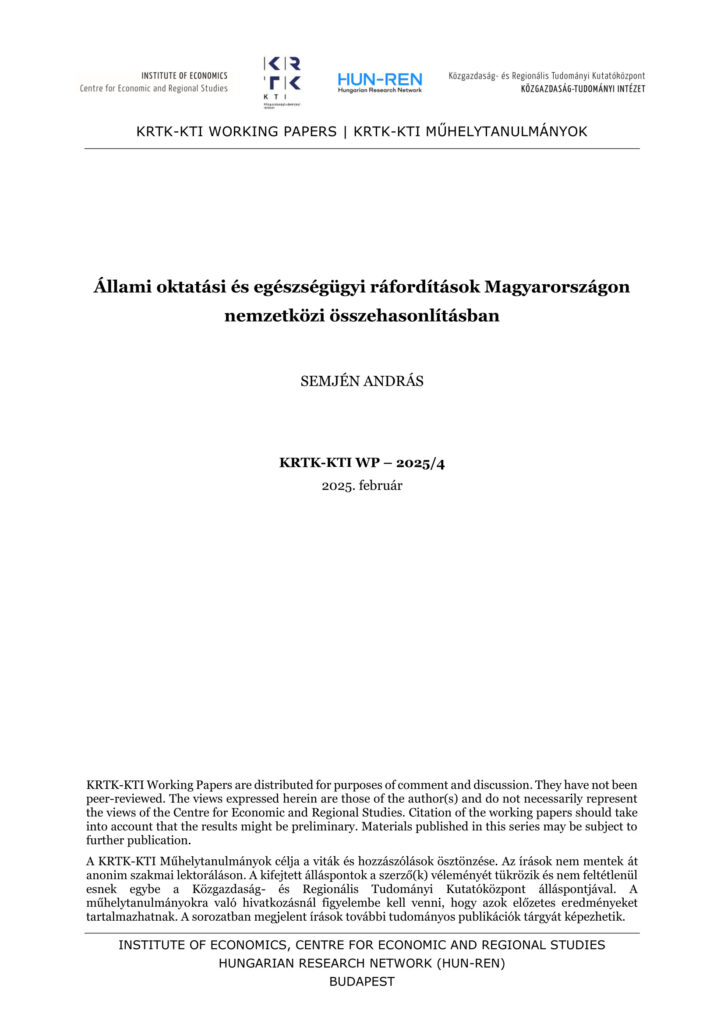
A tanulmány azt vizsgálja egyszerű leíró statisztikai módszerekkel (alapvetően vonaldiagramok segítségével) nemzetközi szervezetek (OECD, Világbank) nyilvános adatbázisai alapján, hogy a magyar állam az emberi tőke előállítására (oktatás) és fenntartására (egészségügy) fordított kiadásai más európai országokéhoz képest mennyire adekvátak, illetve alacsonyak, és hogyan változnak az utóbbi 1-2 évtizedben. A kérdésre az oktatás esetében számos mutató, így […]
The Role of Skills and Wages in Early Career Occupation Mobility: Evidence from Hungary
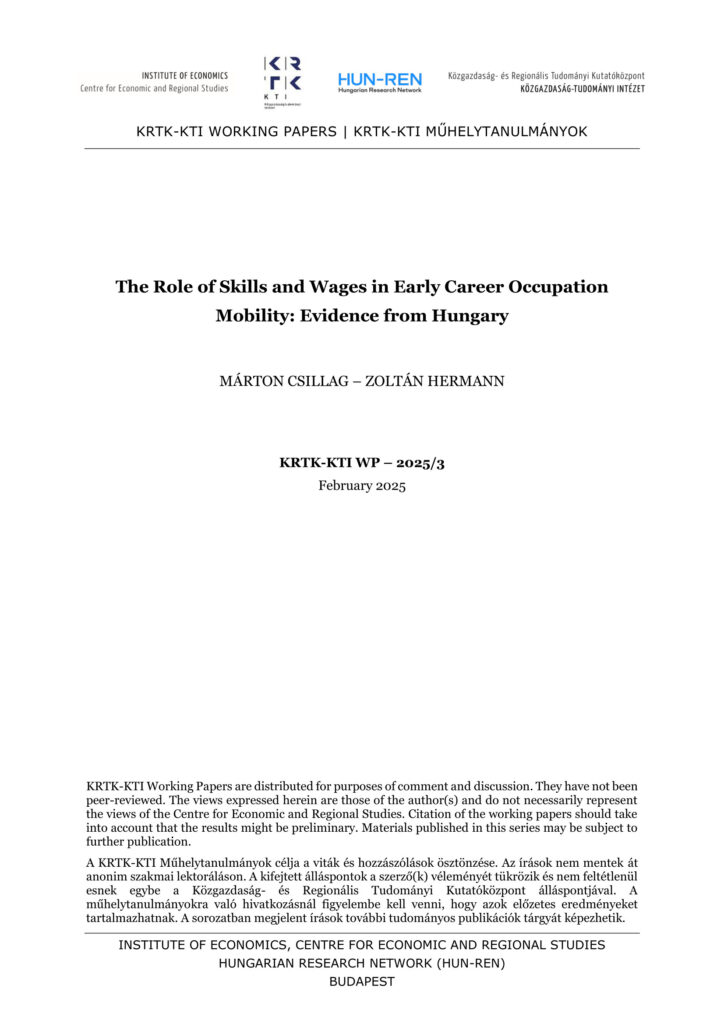
This study investigates the patterns and determinants of occupation mobility among young workers with medium-level qualifications in Hungary during their first 4-8 years in the labor market. Utilizing linked employer-employee panel data augmented with standardized test scores from grade 10, we examine the relationship between occupation mobility, wages, and skills. Our findings indicate that wages […]
How socioeconomic status differences observable in students’ delay of gratification evolved over the period of COVID-19-induced online education
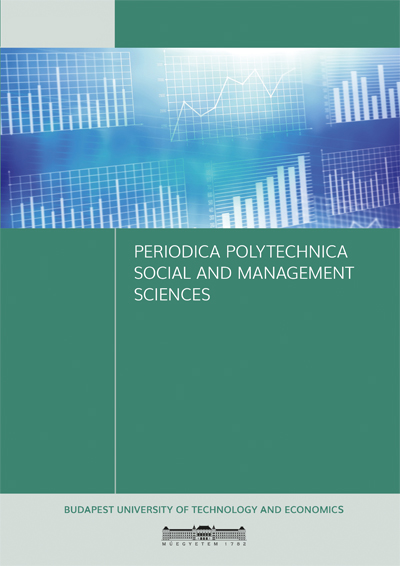
Tamás Keller – Hubert János Kiss Periodica Polytechnica : Social and management sciences Online First, Published online: 21 February 2025 Abstract: We show the evolution of the delay of gratification (DG) in 950 students aged 10–14 during coronavirus-induced home-based online education, by analysing data from two waves of voluntary online surveys. Students in the highest […]
Peers, parents, and self-perceptions: the gender gap in mathematics self-assessment
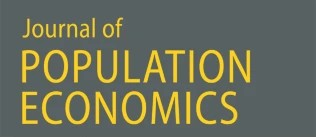
Anna Adamecz – John Jerrim – Jean-Baptiste Pingault – Nikki Shure Journal of Population Economics, Vol. 38. No. 1. Art. No. 33. (2025) Abstract: It is well established that boys perceive themselves to be better in mathematics than girls, even when their ability is the same. We examine the drivers of the gender gap in […]
Odd Paths, Cycles, and T-Joins : Connections and Algorithms
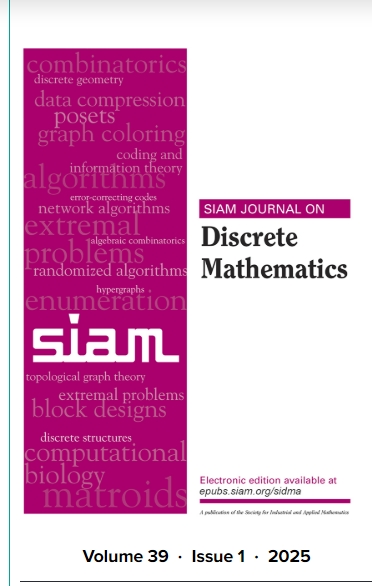
Ildikó Schlotter – András Sebő SIAM Journal on Discrete Mathematics, Vol. 39. No. 1. (2025) p. 484-504. Abstract: Minimizing the weight of an edge set satisfying parity constraints is a challenging branch of combinatorial optimization as witnessed by the binary hypergraph chapter of Alexander Schrijver’s book [Combinatorial Optimization, Springer-Verlag, 2003, Chapter 80]. This area contains relevant […]
The Rise of Linked Employer-Employee Panel Data: Where Are We Now?
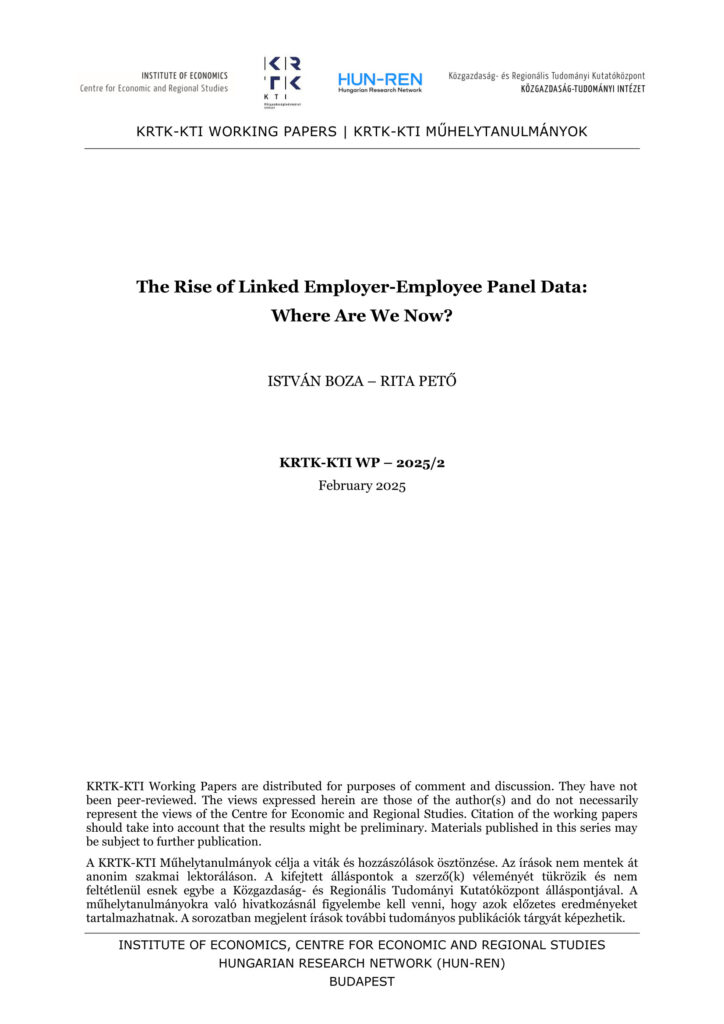
In recent decades, one of the most significant advancements in empirical labor economics was the emergence of longitudinal linked employer-employee datasets. This paper aims to provide a snapshot of this data revolution. With LEE panels now available in over 30 countries, we survey their general availability and key characteristics. Beyond common features, we highlight the […]
Job relatedness, local skill coherence and economic performance: a job postings approach

Martin Henning – Rikard Eriksson – Petrus Garefelt – Hanna Martin – Zoltán Elekes Regional Studies, Regional Science, Vol. 12. No. 1. (2025) p. 95-122. ABSTRACT The local presence and composition of skills is commonly thought to have enormous implications for economic development. Yet, skills and the relations between them are notoriously difficult to pinpoint and […]
Computational complexity of k-stable matchings

Haris Aziz – Gergely Csáji – Ágnes Cseh ACM Transactions on Economics and Computation, Vol. 13. No. 1. Paper 5. 25 p. (2025) Abstract We study deviations by a group of agents in the three main types of matching markets: the house allocation, the marriage, and the roommates models. For a given instance, we call […]
Partitioned matching games for international kidney exchange
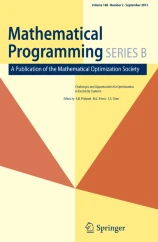
Márton Benedek – Péter Biró – Walter Kern – Dömötör Pálvölgyi & Daniel Paulusma Mathematical Programming Full Length Paper, Series A, Published: 11 February 2025 Abstract We introduce partitioned matching games as a suitable model for international kidney exchange programmes, where in each round the total number of available kidney transplants needs to be distributed amongst the participating […]
From vodka to craft beer : the craft beer revolution in the Baltic states
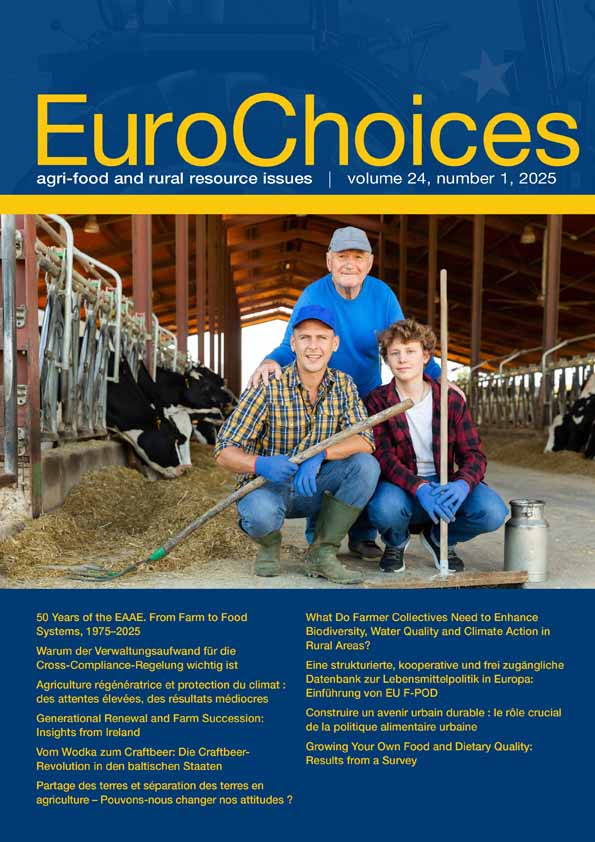
Imre Fertő – Ants-Hannes Viira – Aldona Stalgiené – Zoltán Bakucs Eurochoices, Vol. 24. No. 1. pp. 36-42. (2025) Summary The once flourishing beer sector of the Baltic states was decimated and homogenised into low-quality mass-produced beer during Soviet times. Against this background, the article examines the micro- and craft beer scenes in the Baltic […]
Revisiting the Dunning-Kruger effect: composite measures and heterogeneity by gender
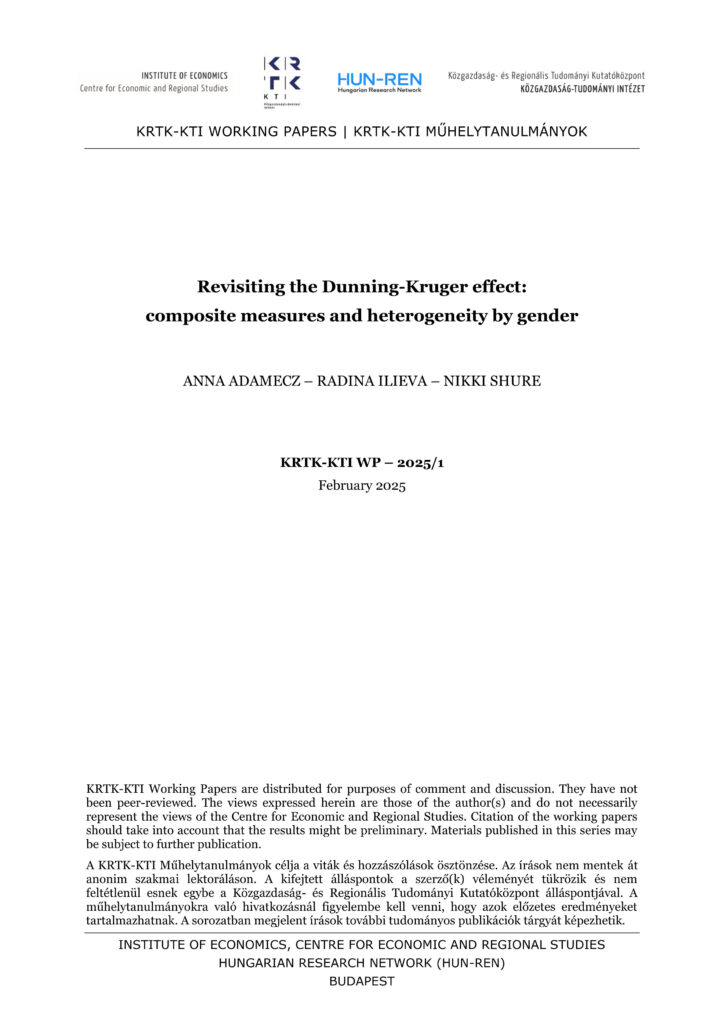
The Dunning-Kruger effect (DKE) states that people with lower levels of the ability tend to self-assess their ability less accurately than people with relatively higher levels of the ability. Thus, the correlation between one’s objective cognitive abilities and self-assessed abilities is higher at higher levels of objective cognitive abilities. There has been much debate as […]





